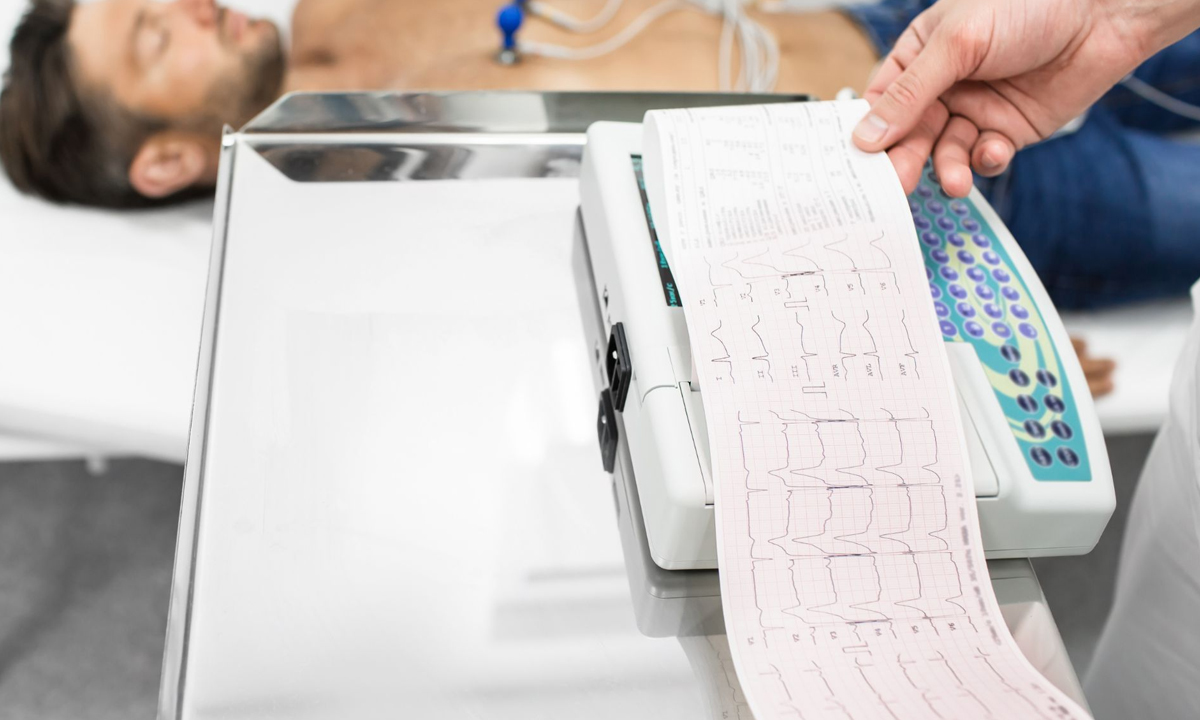An ECG is a commonly performed cardiac test that is used to record and check the electrical activity of the heart. It shows the electrical activity as line tracings on a paper, with spikes and dips called waves.
In simple words, an electrocardiogram (ECG) is a basic test that is performed to observe your heart beat and electrical movement. Sensors attached to the skin help to distinguish the electrical signs delivered by your heart every time it beats. These signs are recorded by a machine and are looked at by a specialist to check the activity. An ECG test might be advised by a cardiologist or any specialist who figures you may have a problem with your heart, including your general physician. In spite of having a comparable name, an ECG test isn’t equal to an

An ECG scan is frequently used along with different tests to help analyze and screen conditions influencing the heart. It is also used to examine signs of a potential heart issue, for example, palpitations (abruptly observable pulses), chest torment, dizziness and breathing issues.
A progression of ECG scan can be taken over a period of time to monitor an individual with previously detected heart conditions.
The ECG test is directed by putting electrodes on the patient’s arms, legs, and chest. A gel is applied on before the electrodes are attached on these spots. These electrodes are attached to a machine that will record the electrical activity of the patient’s heart. The method is non-obtrusive.